Cool new features in Ubuntu 8.04

These features are showcased for your attention. Please test them and report any bugs you find. If you want to see what the developers have cooking for the next alpha release, take a look through the Hardy blueprints page: https://blueprints.launchpad.net/ubuntu/hardy
Upgrading from Ubuntu 7.10
To upgrade from Ubuntu 7.10, run "update-manager -d" using the update-manager package from Gutsy.
Xorg 7.3
The latest Xorg is available in Hardy, Xorg 7.3, with an emphasis on better autoconfiguration with a minimal configuration file.
Linux kernel 2.6.24
Alpha 4 includes the 2.6.24-5.8 (2.6.24-rc8-based) kernel. This brings in significant enhancements and fixes that have been merged in the last few months into the mainline kernel. Among these is the introduction of dynticks support for amd64, bringing the same power savings already available on 32-bit systems to 64-bit laptops and desktops.
PulseAudio
Alpha 4 includes PulseAudio enabled by default. Some non-GNOME applications still need to be changed to output to pulse/esd by default and the volume control tools are still not integrated. https://blueprints.launchpad.net/ubuntu/+spec/cleanup-audio-jumble
PolicyKit
With Alpha 4, PolicyKit integration is visible in the administrative user interfaces. PolicyKit makes it possible to run administrative applications as a normal user, and have them get a particular set of extra privileges for certain operations, which allows fine-grained control over user permissions and enhances usability, as well as eliminating the security implications of running the whole application as root.
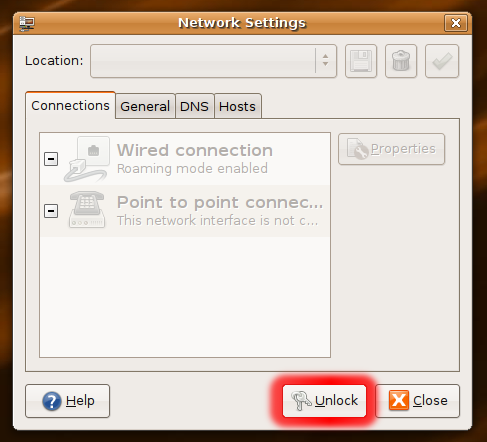
For details of PolicyKit integration in Hardy, refer to the policykit-integration blueprint.
Firefox 3 Beta 2
The latest Firefox 3 beta is packaged in the repositories, bringing much better system integration including icon and colour theming that matches the system, as well as GTK2 form buttons and open dialog.
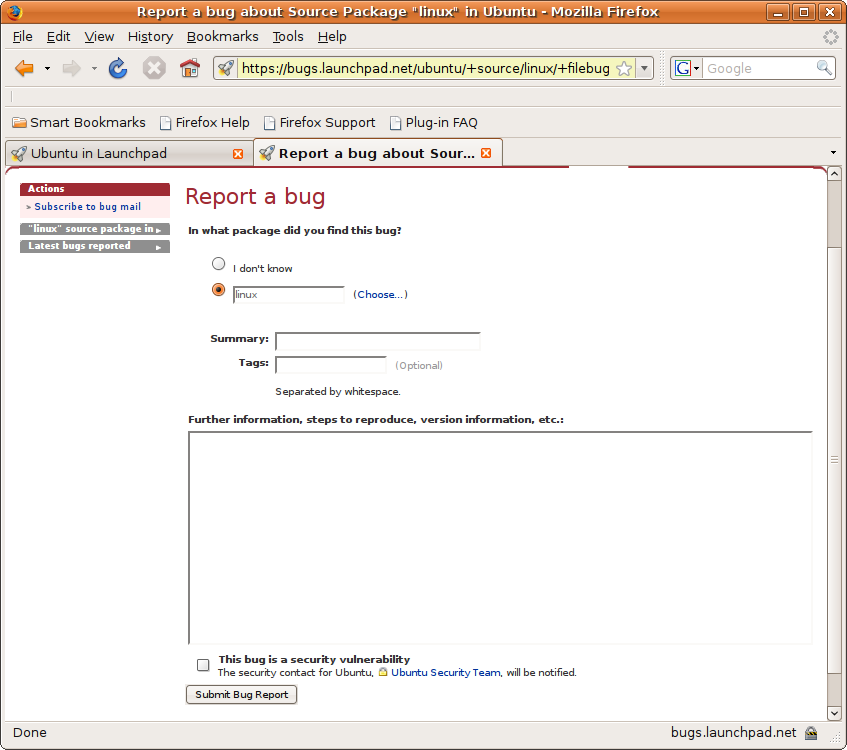
You can read more about the work on the Fox and Penguin blog post by Michael Ventor, a Mozilla intern.
Transmission
The GTK version of the popular Transmission BitTorrent client comes with Alpha 4. It's set to replace the Gnome BitTorrent downloader.
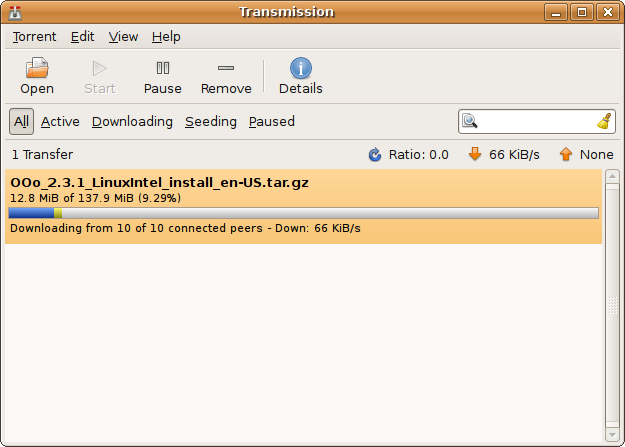
Vinagre
The new Vinagre VNC client is installed by default in Alpha 4, replacing xvnc4viewer.
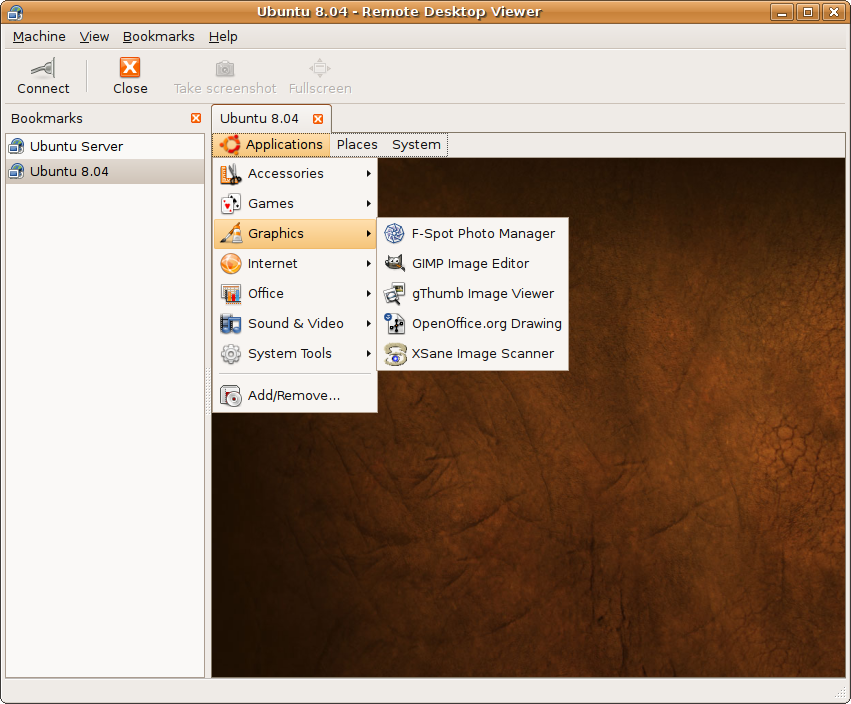
Vinagre allows the user to view multiple machines simultaneously, can discover VNC servers on the network via Avahi, and can keep track of recently used and favorite connections.
Brasero
The Brasero CD/DVD burning application, which will complement the CD/DVD burning functions of Nautilus and replace the Serpentine audio CD burning utility, is installed by default in Alpha 4.
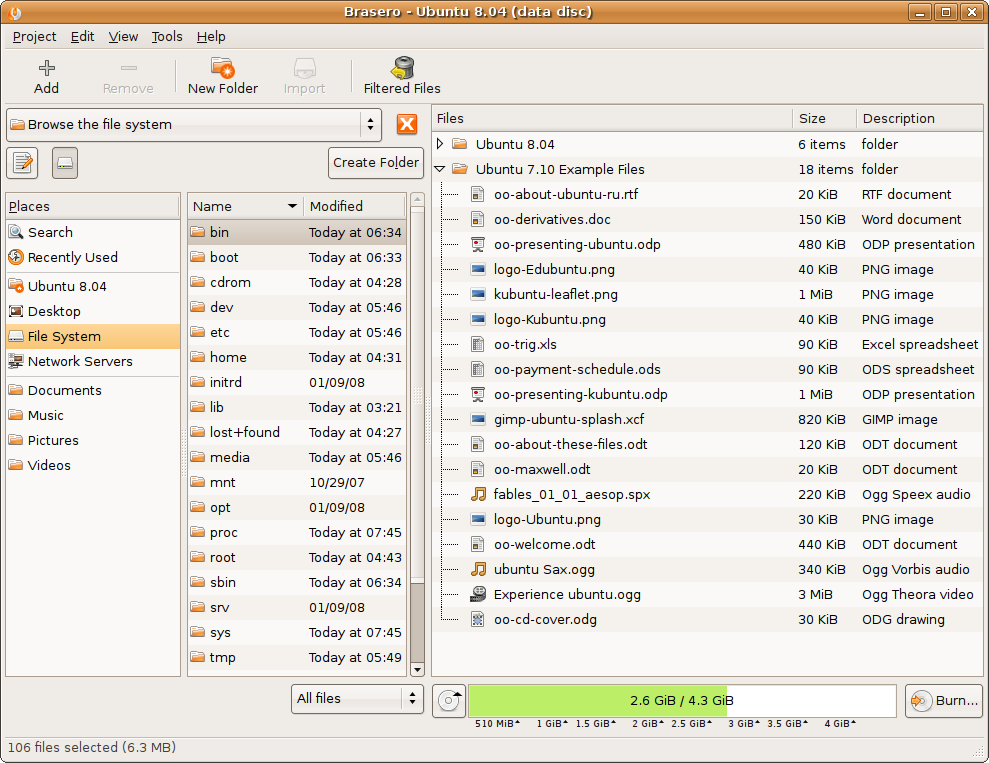
World Clock Applet
Integrating the features of the intlclock applet, the GNOME panel clock in Alpha 4 can display the time and weather in multiple locations.
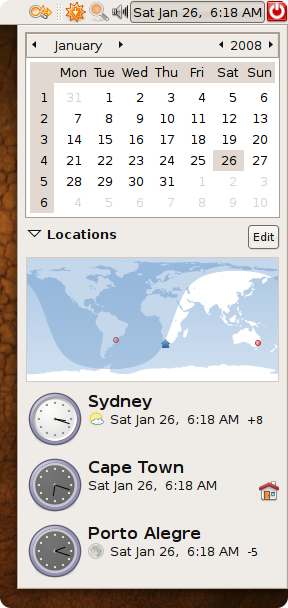
GVFS
Nautilus 2.21.6 in Alpha 4 uses GVFS, the virtual filesystem abstraction layer that's set to replace the aging GnomeVFS in GNOME 2.22, as its backend. In the near future, GVFS will make it possible to fix shortcomings of Nautilus such as the inability to restore files from trash, pause and undo file operations, and make it possible to escalate user privileges for certain operations using PolicyKit for authentication. It also brings a significant performance boost to many operations.
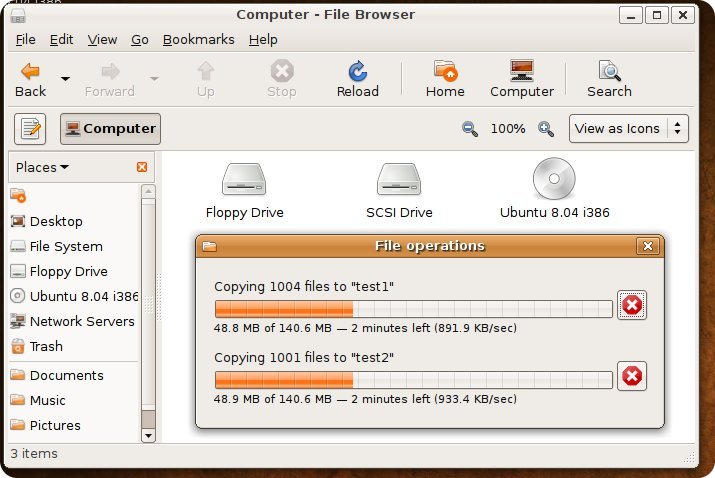
You can read more about the transition to GVFS at Nautilus developer Alexander Larsson's blog.
GNOME System Monitor
The GNOME System Monitor has a revamped "Resources" tab, with Cairo graphs that scroll and scale smoothly, and brand new widgets.
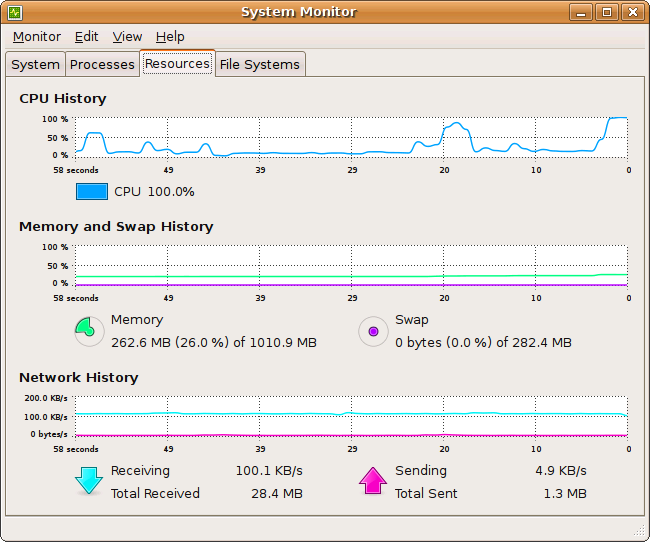
Virtualization
-
KVM is now officially maintained within the Ubuntu kernel.
-
libvirt and virt-manager have been adapted to Ubuntu. They allow for easy guest creation and basic management out of the box. Virt-manager can be used to remotely administer guests on a remote server. They also work with XEN, even though it is not officially maintained.
-
The kernel also includes the virtio modifications which should greatly improve guest I/O access.
Firewall
ufw (Uncomplicated Firewall) is a new firewall application designed to make administering a firewall easier for end-users while not getting in the way of network administrators. Currently, ufw is a command-line interface for administering host-based firewalls.
For more details, read the UbuntuFirewall specification.

Labels: computers, operating systems, Ubuntu












<< Home